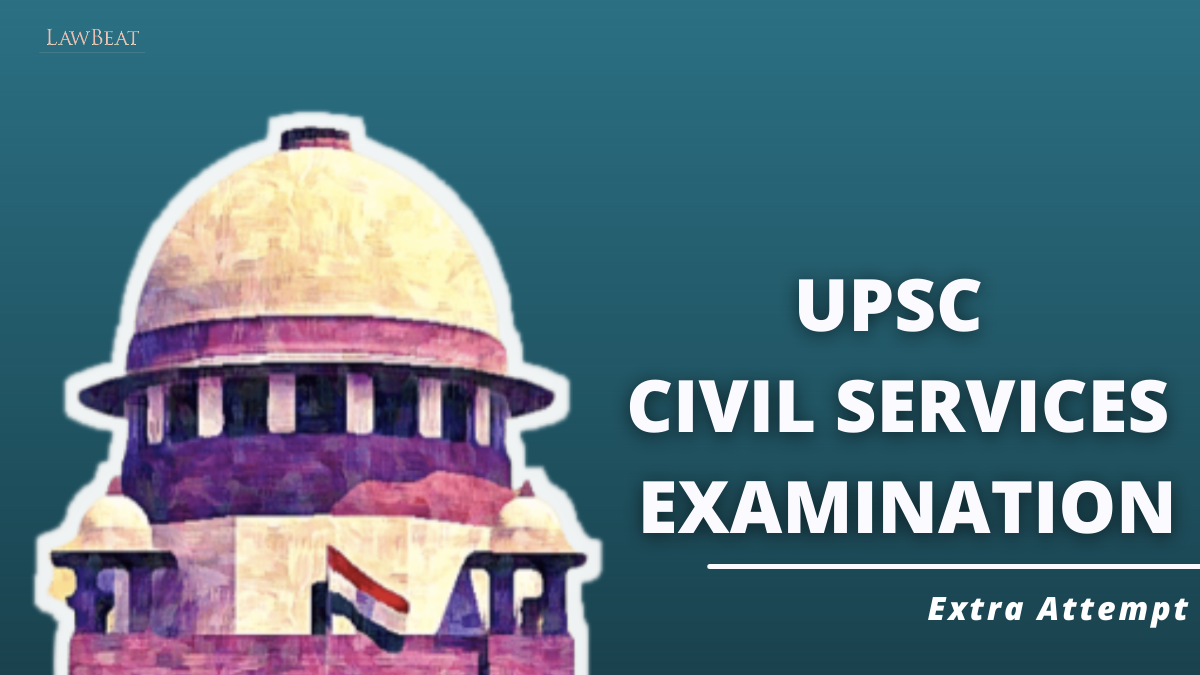Indulgence To CSE 2020 Aspirants Will Set Precedent & Will Have Cascading Effect On Exams In Other Schemes: Supreme Court

The Supreme Court has disallowed the grant of an extra attempt for civil services examination aspirants who could not take the examination in October 2020 on account of Covid19.
A Full judge bench of Justice Ajay Rastogi, Justice Indu Malhotra and Justice A.M. Khanwilkar while disposing off a petition which challenged the proposal granting an extra chance to the last attempt candidates, not otherwise age barred under the Rules of 2020, observed, “Judicial Review of a policy and to issue mandamus to frame policy in a particular manner are absolutely different… The Court is called upon to consider the validity of a policy decision only when a challenge is made that such policy decision infringes fundamental rights guaranteed by the Constitution or any other statutory right.” The bench found no infirmities with the proposal forwarded by the Respondent Authority.
Factual Matrix
On 5th September, 2020, a writ petition was moved seeking postponement of exam, relaxation of upper age limit and an additional attempt.
On 4th October, 2020, UPSC was conducted by the Respondents.
On 30th September, 2020, Top Court directed the Respondents to explore the possibility of providing one more attempt to candidates giving last attempt and who are likely to become age barred for the next examination.
On 5th February, 2021, Respondent 1 placed on record their agreement to give one time relaxation, limited to UPSC 2021 candidates who appeared in Examination 2020 as their last permissible attempt and otherwise not age-barred from appearing in UPSC 2021, and no relaxation to the candidates who have not exhausted their permissible number of attempts or who are otherwise age-barred from appearing in UPSC 2021.
The said decision of 5th February was challenged as discriminatory on the grounds of Article 14, 19, 21 and 29.
Relevant Rules
Rule 4 and Rule 6, Scheme of Rules 2020; Published on 12th Feb 2020 by Ministry of Personnel, Public Grievances and Pensions (Department of Personnel and Training)
Key Observations
- Scheme of Rules 2020 provide adequate opportunity of participation to the candidates; 21 years to 32 years with further age relaxation to reserved category. Rule 6 clearly mandates that age limit prescribed in no case can be relaxed except for the leverage already enumerated to the specified categories.
- Candidates got additional five months for preparation; first notification being issued on 12th Feb, 2020 with exam being scheduled on 31st May, 2020 following a policy decision taken on 5th June, 2020 to reschedule the same on 4th October, 2020 on account of COVID-19.
- Commission took a policy decision to open window for withdrawal of application from, 1st August 2020 to 8th August 2020 which is not the ordinary course available under the stipulated Rules. Since the exam was scheduled on 4th October, 2020, the remaining candidates who did not choose to withdraw, were assumed to be mentally prepared and willing to avail an opportunity of appearing in the exam; “When they could not qualify, it has given way to the present litigation on the specious ground of COVID 10 pandemic”
- Several other exams by the Centre and State must have been conducted during the said period and the case of the petitioner cannot be taken into isolation for the purpose of seeking additional attempt on the ground of COVID 19 pandemic, more so, in the absence of any such provision under the Rules of 2020.
- No discretion is vested with Respondent 1 to grant relaxation either in attempt or in age in view of the stipulated Rules.
- Challenge on the grounds of Legitimate Expectation, Article 14 and Article 21 not well founded, in as much as, earlier relaxations if any varied in facts and circumstances, tested independently by the competent authority.
- Addressing grievance on relaxation age limit and number of attempts by the Respondent in the year 2015, Court placed reliance over the response of Respondent authority stating change in exam pattern which was specific to the case of 2015 and cannot be relied as a precedent or insisted with the aid of Article 14; “It is settled principle of law that policy decisions are open for judicial review by this Court for a very limited purpose and this Court can interfere into the realm of public policy so framed if it is either absolutely capricious, totally arbitrary or not informed of reasons.” [Union of India v. M. Selvakumar and Anr, 2017 (3) SCC 504]
- “Judicial Review of a policy decision and to issue mandamus to frame policy in a particular manner are absolutely different. It is within the realm of the executive to take a policy decision based on the prevailing circumstances for better administration and in meeting out the exigencies but at the same time, it is not within the domain of the Courts to legislate.”
- “Merely because as a matter of policy, Respondent 1 granted relaxation in the past for the reason that there was a change in the examination pattern/syllabus, no assistance can be claimed by the Petitioner seeking mandamus to Respondent authority to come out with a policy granting relaxation to the participants who had availed a final and last attempt or have crossed the upper age by appearing in the Examination 2020, as a matter of Right.”
- Considering other examinations conducted in the same tenure, facing same challenges, by Central and other State agencies, it was noted by the bench, “If the Court shows indulgence to few who had participated in CSE 2020, it will set down a precedent and also have cascading effect on examination in other streams, for which we are dissuaded to exercise plenary powers under Article 142.”
Case Title: Rachna & Ors v. Union of India | WP (CIVIL) No. 1410 of 2020
